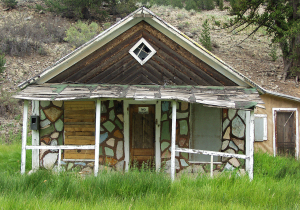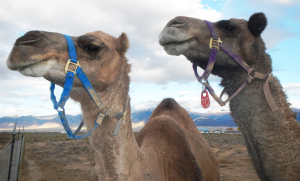by Brian Calvert
Utah is ground zero this year for the attempt by some Western states to claim federal lands. In September, when Southern Utah University hosted a debate on the controversial proposal, close to 250 people packed the hall as two professors, Bob Keither and Dan McCool, argued that however messy its oversight, the federal government should remain the boss. At least in Utah, this is not a popular position.
Republicans Becky Lockhart and Ken Ivory, meanwhile, criticized the feds for woeful fire and wildlife management, while Ivory attacked the very notion of federal land ownership. Pointing to a map of the United States that contrasted the West’s vast publicly owned lands with the East’s obvious lack of them, he asked, rhetorically, “Why the difference?”
The answer has to do with federal land purchases from France, Mexico and Russia between 1781 and 1867, as well as the seizures of territory from Native Americans. But Ivory, a business lawyer and the newest champion of federal-to-state land transfers, did not delve into any of that. Instead, he denounced the federal government’s “one-size fails all” management policy, saying the states could do far better.
Ivory sponsored Utah’s Transfer of Public Lands Act in 2012, which insists that the feds give the states 20 million acres of public land. He claims the government promised to some day transfer these lands, though McCool told the crowd no such “magic promise” exists. “These lands right now belong to all of us, all 314 million Americans,” he said. “I think that’s a pretty good setup.”
In Utah, however, some polls show that more than half of voters said they support a public-land transfer. Yet while Westerners like to gripe about the federal government, polls show that the National Park Service, the U.S. Fish and Wildlife Service and the Forest Service all had approval ratings higher than 70 percent. The Bureau of Land Management lags, however, with an approval rating of only 48 percent.
So while it might be easy to dismiss Ivory’s vision of a feds-out West, 42 percent in favor of local control is not a small number. And while Western states have made similar demands in the past that have gone nowhere, this recent iteration is backed by big money. It is gaining at least some momentum. Over the last two years, eight Western states have pursued the idea.
Proponents often point to Ivory’s legislation as a model. Ivory has championed the idea in speeches across the region as president of the American Lands Council, a nonprofit that supports public-land transfers. Council members include 46 county boards of commissioners, who pay heavy dues using taxpayer dollars, as well as private interests, including Canyon Construction, a mining construction company, the Nevada Cattlemen’s Association and Deseret Power. Americans for Prosperity, a powerful dark-money group founded by the billionaires Charles and David Koch, is also a member of the group.
Ivory’s rhetoric, meanwhile, resembles language used by the American Legislative Exchange Council, or ALEC, a consortium of corporations that produces “model” legislation for ultra-conservative state lawmakers across the country. Federal ownership of the land “prevents the states from accessing the abundant natural resources contained on those lands,” ALEC claims in one such model law.
Examined closely, though, the “remedy” looks more like snake oil. Keiter, a law professor, points out that historically, in land transfers and exchanges, the federal government does not grant mineral rights to known reserves. Without mineral rights, the states could not afford to manage the lands they’d obtain under the scheme. The Denver-based Center for Western Priorities notes in a recent study that the burdens of fighting wildfires alone could easily overwhelm states. In Idaho in 2012, for instance, the U.S. Forest Service spent $169 million on fire suppression – more than three times the state’s law-enforcement spending.
“Proponents of this measure are conveniently silent on how they would afford these costs without raising taxes or selling the land or throwing it open to mining and drilling,” says Jessica Goad, advocacy director at the center. Those with the most to gain from land transfers, it seems, are the corporations that back Ivory’s nonprofit.
Ivory says that Utah has put aside $2 million to prepare potential litigation against the feds, and that the state will want mineral rights, too. And he continues to build support. On Oct. 9, the American Lands Council hosted more than 80 officials from 14 states to discuss the land-transfer initiative. That kind of cooperation means the issue is not going away, Ivory insists. “The genie is out of the bottle.”
Brian Calvert is a contributor to Writers on the Range, a column service of High Country News in Paonia, Colorado, where he is the associate editor.



